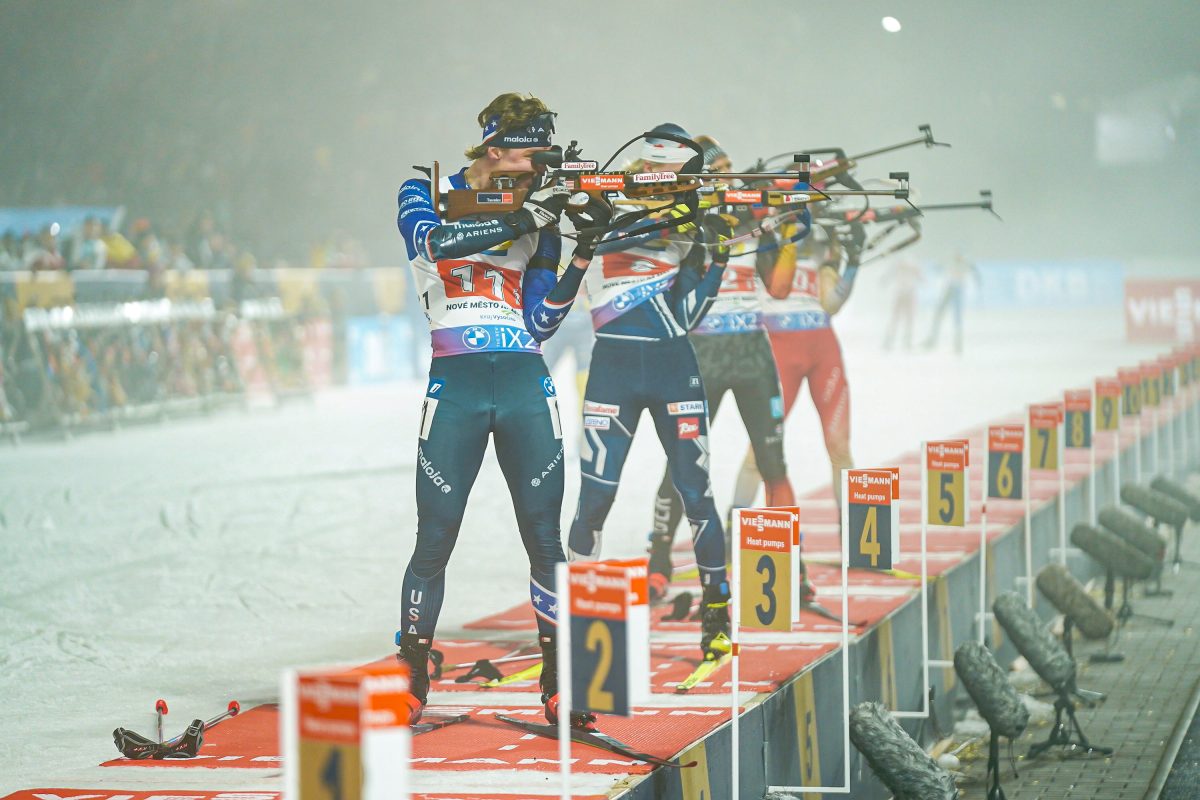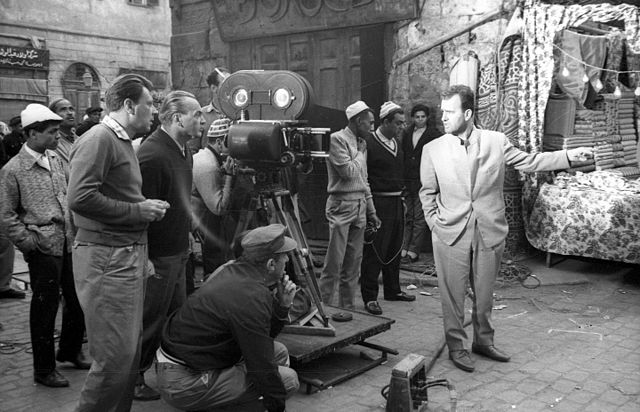
Ruhpolding, Germany, has been both kind and cruel to Olympic gold medalist Bjorn Ferry of Sweden.
On one hand, the summer before his Olympic victory, he crashed while rollerskiing at the venue. The impact broke his collarbone and he had to have surgery and give up a period of training.
But on the other, Ruhpolding is his second home.
“I have trained here three times every year for the past ten years, so I have spent more than a year here,” Ferry said in a press conference. “After the Olympics and World Championships, this is the biggest win in biathlon, the pursuit in Ruhpolding.”
Did his rollerski crash do anything to shake his confidence at this week’s World Cups?

“No,” he said, laughing. “Today we went the opposite direction from the roller track, so I was confident on the downhills.”
And on the uphills, too: Ferry (whom FasterSkier interviewed earlier this year) used perfect shooting and an aggressive attack on the last loop to win Sunday’s pursuit, despite starting from bib eight, almost a minute behind Lars Berger, the winner of Friday’s sprint.
Berger attacked out of the start and had one of the fastest ski times of the day. After three shooting stages, he was still in the lead despite having missed two shots. But in the last standing stage, he racked up three penalties and removed himself from contention for the win.
While Berger was visiting the penalty loop, the race opened up. Ferry, Martin Fourcade of France, and Michael Greis of Germany all shot clean in the final stage, and they left the range with Greis in the lead. They were followed closely by Tarjei Boe of Norway, the current overall World Cup leader, and Ivan Tcherezov of Russia. The 26,000 spectators settled in for what promised to be an exciting finish.

And they weren’t disappointed. After skiing together for a brief time, the group was broken apart when Ferry attacked going up one of the hills. For a moment, it looked like Fourcade was going to be able to stay with him. But then Ferry dropped him, too, and was able to hammer his way to the finish uncontested. He even had time to stand up and celebrate at the finish, pumping his fist and skiing across the line on one foot as the four skiers behind him fought for their spots on the podium.
At the end of the day, Fourcade was second, and Greis was just barely able to hold off the charging Tcherezov and Boe; the three were separated by less than a second.
It was Fourcade’s third second-place finish in as many races, and his consistency allowed him to move up to third place in the overall World Cup rankings, breaking up the Norwegian party at the top. Ole Einar Bjorndalen, who had been in third place, did not race in the pursuit. Boe and Emil Hegle Svendsen still own the top two spots.
“I knew after Oberhof that I was in good shape and hoped to do well this week,” Fourcade told IBU News. “But you can never say that you will be on the podium for the third time. Biathlon is not an exact science.”
That’s a sentiment that was echoed by Jeremy Teela, the third American finisher in the race who moved up from bib 58 to finish 41st. His impressive improvement was matched by Lowell Bailey, who moved from 50th to 29th, and Tim Burke, who improved from 56th to 36th.
When asked why all three men had better performances than they were able to muster in the sprint, Teela said it was a “hard question.”
“Sometimes as a group we perform better on certain days, I’m not sure why,” he told FasterSkier.
Today was definitely one of those days, as Burke and Bailey had three penalties and Teela two. Bailey and Burke also had the 15th- and 17th-fastest ski times of the day.
“I guess today the three of us were starting in the back, so we had nothing to lose,” Teela said. “Normally this mentality takes some pressure away. You can let your body do what it normally does in training without the brain getting in the way.”
While their late start positions might have helped them relax, Burke was disappointed that they had started at such a disadvantage, because it meant that even strong races couldn’t get them better results.
“Today was definitely a really solid day for the team,” he said in an e-mail. “We all moved up quite a bit, but unfortunately we all started a little too far back in the pack to have a top result. The reason for our success today was definitely the shooting. As a team, we had less penalties today than in the sprint, despite shooting twice as much. Hopefully this will help us all get back in the flow for next week.”
It’s pretty likely, as both Bailey and Teela had their best of weeks of World Cup results so far this year here in Ruhpolding. Bailey finished 16th in Wednesday’s individual, and led the team in each race of the series.
With finishes of 58th and 41st in the sprint and pursuit, Teela seems to be coming into form after a frustrating December World Cup campaign in which his top finish was 77th and he never made a pursuit.
Teela said that he had been hit hard by a parasite in the Ostersund drinking water (FasterSkier covered the story) and had never recovered.
“It really brought me down… looking back on it now I should have gone home after World Cup 1 to rest and train,” Teela said. “Instead I continued to race World Cups 2/3. Over Christmas break I was able to rest and train again. The form seems to be coming back I’m looking forward to putting together some top results that will contribute positively to our team.”
Brendan Green led the Canadians with a 40th-place finish. Scott Perras finished 48th and Marc-Andre Bedard 52nd.



